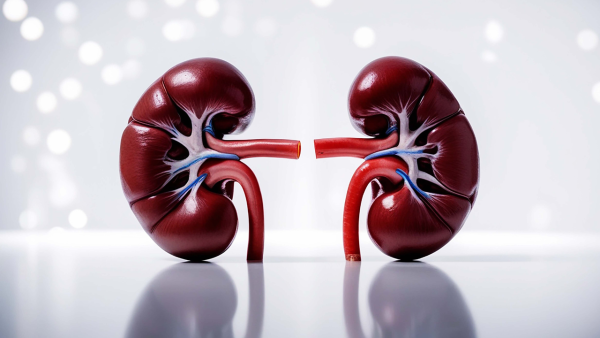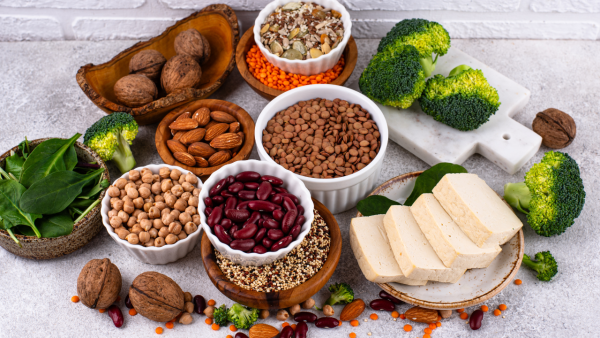
High-protein diets have been lauded for their rapid weight loss and muscle-building effects. In new-age diets such as, paleo, protein has emerged as the darling of contemporary diet. But something that is not known to many is that more protein can be a double-edged sword that goes from being a health promoter to a stealthy menace, particularly to the kidneys. Although protein is vital for repairing tissues and providing energy, excessive intake burdens these critical organs that toil to filter out toxins and balance fluids.
The kidneys' balancing act

The kidneys clear waste products from the blood, control electrolytes, and adjust water balance. When someone eats more protein than their body needs, the kidneys have to overwork to filter out urea and other nitrogenous wastes generated from metabolizing protein. This overworking repeatedly may result in microscopic damage which accumulates over years, particularly in individuals with pre-existing kidney susceptibilities like diabetes, hypertension, or a history of kidney disease in the family.
When protein is a loadA study in the Journal of American society of Nephrology, , revealed that high-protein diets raise the intraglomerular pressure, or pressure within the kidney's filtering units. The pressure destroys the glomeruli, the tiny filters that clean the blood. Chronic kidney disease develops with time.
The dehydration trap

One of the lesser known consequence of a high-protein diet is dehydration, as strange as it sounds, this is also a factor! Protein breakdown results in the formation of urea, which the body needs to expel in the form of urine. This raises the body's need for water. Lacking adequate fluid consumption, the kidneys are unable to flush out these waste products, leading potentially to kidney stones or even to acute kidney injury in severe situations. The issue becomes more significant with individuals who add high protein consumption along with strenuous exercise, caffeine, or little intake of carbohydrates, all which speed up fluid loss. Study published in the National Institute of Health, under the titel, , states that, A high-protein diet increases the excretion of nitrogenous wastes such as urea, which raises the body’s water requirements to prevent dehydration. In a 12-week controlled study, participants consuming a high-protein diet (3.6 g/kg/day) showed increased blood urea nitrogen, urine-specific gravity, and plasma osmolality, all signs of higher kidney workload. High protein intake (1–1.5 g/kg/day) is generally safe for healthy older adults, but may be risky for those with kidney issues, diabetes, hypertension, or a history of kidney stones. It is to be noted, that more extensive research is required to further comment on this phenomenon, exisiting research suggests the above mentioned part
The silent danger for diabetics and elderly
Individuals with diabetes or hypertension are especially vulnerable. Moderately high protein intake can accelerate kidney damage for them. The advises them to maintain their protein intake in moderation, preferably below 0.8 grams per kilogram of body weight per day, if not otherwise instructed by a physician. Age is also a factor, as kidney function will decrease over the years, lowering the ability of the organ to process the excess nitrogen burden associated with
Finding the right balance

It is imperative to understand that protein here, is not the villian, the excess is! The trick lies in balance,rather than depending exclusively on animal-derieved protein, meat or dairy adding plant based sources that are rich in protein such as lentils, bean, tofu, can deliver equal results, at lower kidney metabolic cost. Avoiding dehydration, selecting lean proteins, and combining them with fiber-containing vegetables further aids kidney function.
A high-protein diet, almost feels like a cheat sheet to fitness and health, maybe for some it is, but excess of everything is bad! The long-term price of a high-protein diet, is paid by our kidneys, that are when strained, function sluggishly. The human body operates best in moderation, and with protein, more is not necessarily better. Sustainable sustenance, not silent sacrifice, should always be the aim.
-
CEED 2026 registrations underway at ceed.iitb.ac.in; apply till October 31

-
EDF urges easy fix that could save you roughly '£60 a year' on energy bills

-
Delhi pollution: AAP vilifying Diwali to appease vote bank, says minister Sirsa

-
MAPPED: The 68 Pizza Hut restaurants to close in the UK - 1 major region losing 7 out of 9

-
Kathiawadi Masala Khichdi: This delicious dish will delight everyone, and it's also easy to digest..